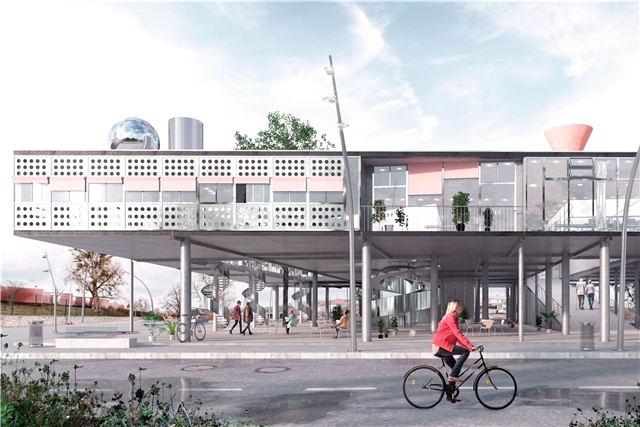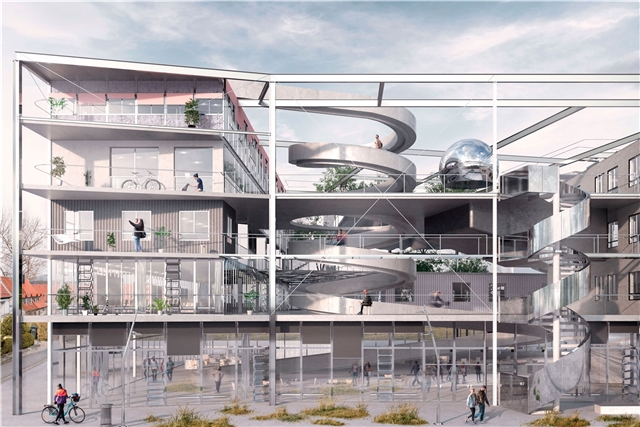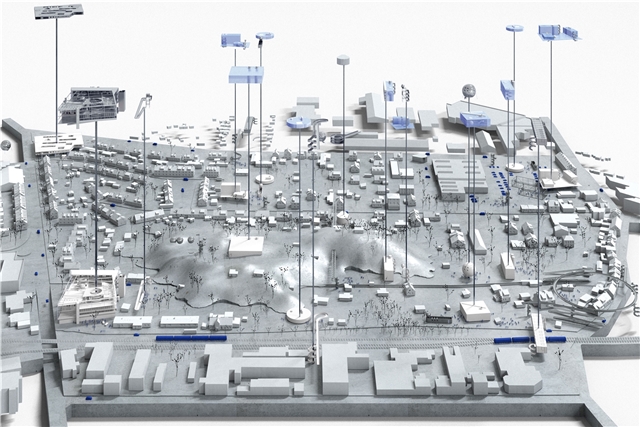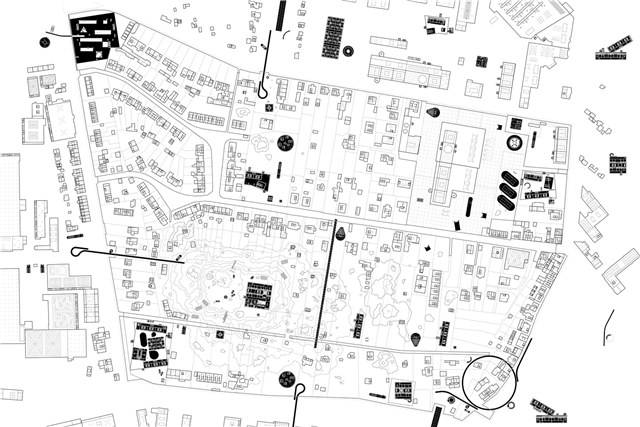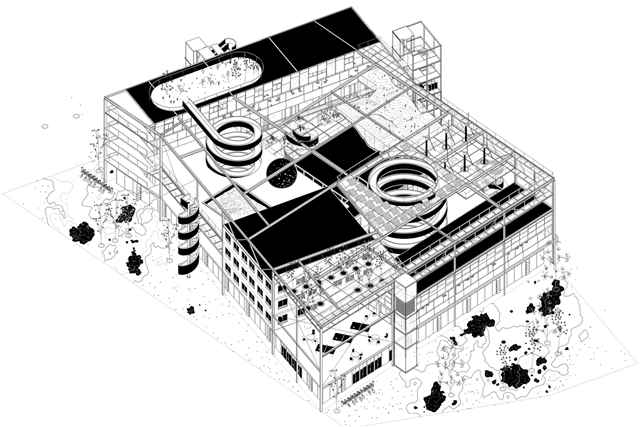‘Domestic Machines’ arises as a project that pretends to rethink the traditional german town and update it into a contemporary paradigm. It upgrades the model of the ‘Garden City’ into the ‘Techno-Garden City’, which opens up a new framework in where rurality and urbanity are not anymore opposed realms but different temporal states of the same context. Nor are the private and the public, nor work and life. Consequently single family homes or collective housing are not anymore counterpointed types. They are not anymore irreconcilable situations. Through two different typologies of formalization, the combination of ‘Domestic Machines’ allows for the creation of a new type of domesticity where independence and community are no longer incompatible, but rather coexist in the same architecture, within the two new models proposed for the sites.
The strict zoning of urban programs, which for decades has governed the design of the modern city, has resulted in a territorial inequality between large residential suburbs on the periphery and dense work centers in the centers. Generating a unilateral dependence between them and causing the shortage of large metropolitan areas due to their deficit of mixed programs. Consequently, the public and private spheres have been held captive in watertight enclosures. Faced with this inequality, a hybridization of Life and Work is proposed. A new paradigm not simply urban, but social, in which new models of the Life / Work duo allow the balanced coexistence of both. A mixed territorial structure that integrates new urban tools such as teleworking, co-workings and co-living to generate innovative, more heterogeneous forms of metropolitanism.
Our cities are defined from the spaces where we live in. Both domestic and urban realms are the spatialization of our societies, of their citizens’ lives and of their social behavior. For that purpose, we have worked with Models of users. Both these Models of Users and the Architectural Typology that corresponds them are not just defined in terms of quantities (number of users, age range, square meters, number of specific rooms, services, etc) but in terms of conditions and qualities that define them as citizens of our society. For example, such a Qualification of our Users would establish different models according to the grade labor stability, to the grade of compromise of a partnership, to the grade of in- dependence within a family, or even to the possibility of growth or shirk of a family. The qualities of these groups of users are the ones that construct the daily bases that establish the rules for the definition of our urban an domestic realms. At an extreme of this catalogue stand various typologies that respond to a more conventional way of living, based in the dichotomy life/work and structured around the family node. However, at the other extreme what we have named as Total Living: a reduction of the private practices of living to the minimum cell, orchestrated around a machines that gathers all infrastructure. The remaining public domesticity is experience in community, and living, working or leisure rooms are not confined in apartments but scaled up and manifested commonly as a whole plan of the block. In between these two extreme, a series of variants allow the users to configure their needs.



